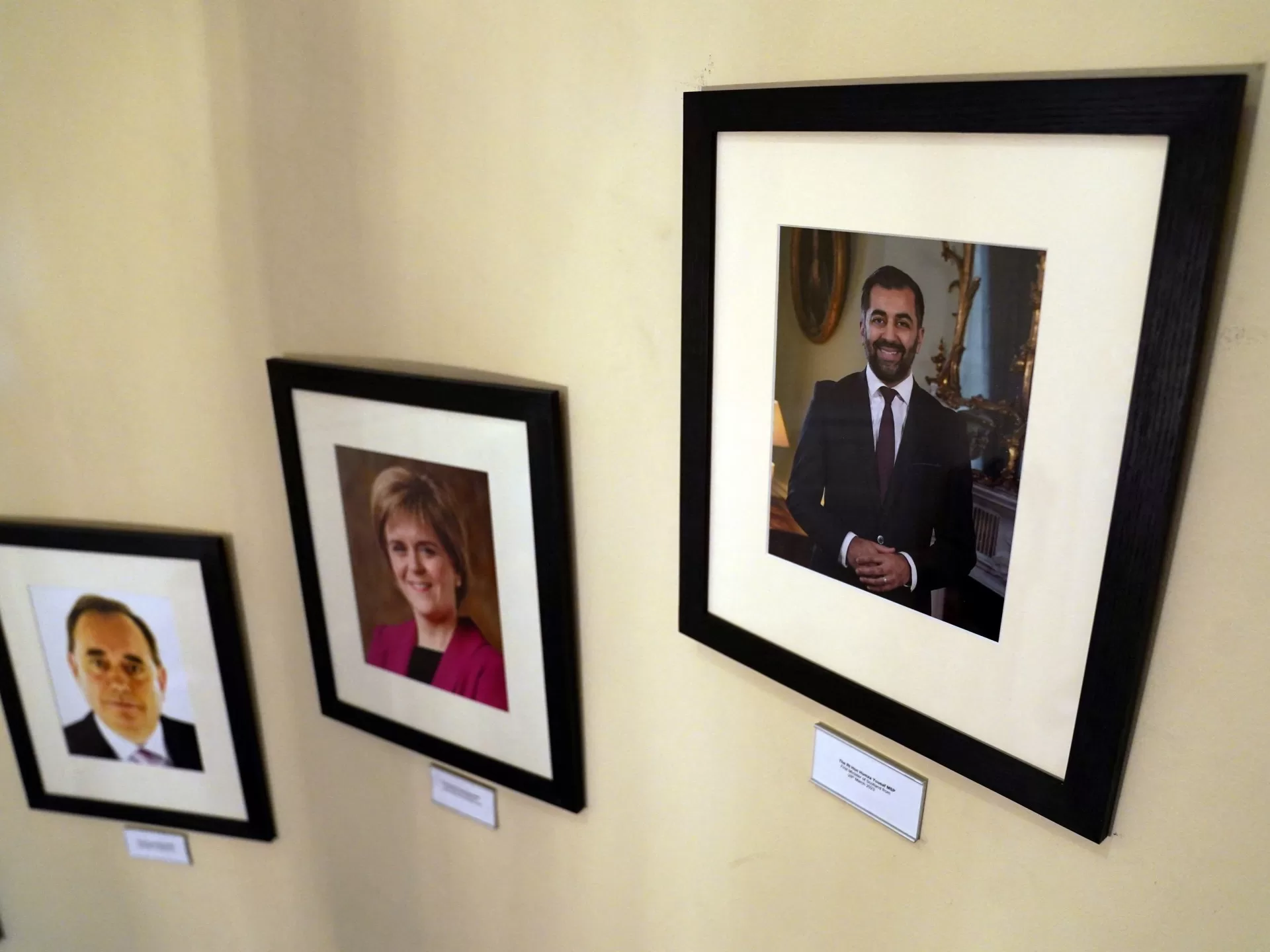Yousaf resigned on Monday after becoming the first Muslim head of government of any Western democracy when he assumed the posts of first minister and leader of the Scottish National Party (SNP) in March 2023. He secured Scotland’s top job after the shock resignation of his predecessor, Nicola Sturgeon.
Sturgeon turned the SNP into an election-winning machine at both a Scottish Parliament and London Westminster level during her eight years and four months as party leader and first minister.
But after the British government repeatedly refused to facilitate her calls for a second referendum on Scottish independence and after long being buffeted by a series of personal and political setbacks, Sturgeon eventually fell on her sword after claiming that her years as Scotland’s most powerful politician had taken its toll.
Yousaf, a Sturgeon loyalist who won Scotland’s top office after defeating two party colleagues in an SNP leadership race, entered office as the head of a power-sharing government after Sturgeon’s deal with the Scottish Green Party in August 2021 resulted in an SNP-Green parliamentary majority.
But Yousaf’s decision to end the alliance on Thursday – which came after the Green Party called an emergency vote on whether to continue with the pact after it was angered by the SNP’s decision to abandon Scotland’s “world-leading” carbon emissions target – capped a tumultuous premiership.
Analysts said it was in jeopardy from the very start.
“He’s had a lot of bad luck,” Scottish political commentator Simon Pia said, referring to the current police investigation into allegations of financial misconduct by the SNP during Sturgeon’s premiership, which led to Peter Murrell, Sturgeon’s husband and the party’s former chief executive, being charged with embezzlement this month.
Pia, a former Scottish Labour press adviser at the Scottish Parliament, said Yousaf at 39 just “didn’t have the political savvy” to handle the rough and tumble of high office.
Indeed, during his resignation speech at Bute House, the official residence of Scotland’s first minister in Edinburgh, Yousaf conceded that he had “clearly underestimated the level of hurt and upset I caused Green colleagues” who, after his decision to axe the emissions arrangement, signalled their intention to vote against him in a confidence motion.
‘Lame duck leader’
Political analyst Gerry Hassan, author of Scotland Rising: The Case for Independence, said Yousaf’s resignation was a reflection of the SNP’s current downward trajectory as a political force after its first victory in Scottish Parliament elections in 2007 and its role in putting Scottish independence into the political mainstream (despite losing a vote on Scottish statehood in a referendum by 55-45 percent in 2014).
“The basic reality is that leaders come and go, and political fortunes go up and down,” Hassan told Al Jazeera of the SNP’s political track record, which has seen the party win four Scottish Parliament elections in a row and three consecutive Scotland-wide Westminster elections.
“Yousaf was a lame duck leader from the moment he was elected, and there is wear and tear from [the SNP’s] 17 years in office [at the Scottish Parliament]. The SNP have defied political gravity for so long, but they were never going to defy it forever.”
While support for Scottish independence remains high at about the 50 percent mark, Sturgeon’s connections to the SNP’s financial woes and her bitter feud with Alex Salmond, her predecessor as SNP first minister, have combined with the party’s problems on the domestic front to create a perfect storm of political upheaval.
One of Yousaf’s many political challenges came in the form of Scotland’s Hate Crime and Public Order Act, which became law on April 1.
The law was established to provide greater protection for victims, but the first minister came under fierce attack from some who contended that those who were critical of the trans-rights movement would be sanctioned for expressing their opinions.
A candidate touted as likely to replace Yousaf is 34-year-old Kate Forbes, the socially conservative former SNP finance secretary who came second to the outgoing SNP leader in last year’s contest.
John Swinney, who served as SNP deputy foreign minister but stepped down in 2023 when Sturgeon quit, told Sky News on Monday that he is considering running.
But with polls suggesting that the SNP is losing ground at both a Scottish Parliament and Westminster level, the “next SNP leader will inherit an extremely difficult set of problems”, said James Mitchell, professor at the University of Edinburgh’s School of Social and Political Science.
“The party has been on a gradual but accelerating decline through failure to move on from the independence referendum,” Mitchell told Al Jazeera.
“It has not managed to resurrect a reputation for governing competence. It is clear that another independence referendum is off the agenda and momentum is now with Scottish Labour. Unless the new leader can achieve much more than Yousaf or Sturgeon, then the immediate future looks bleak.”
